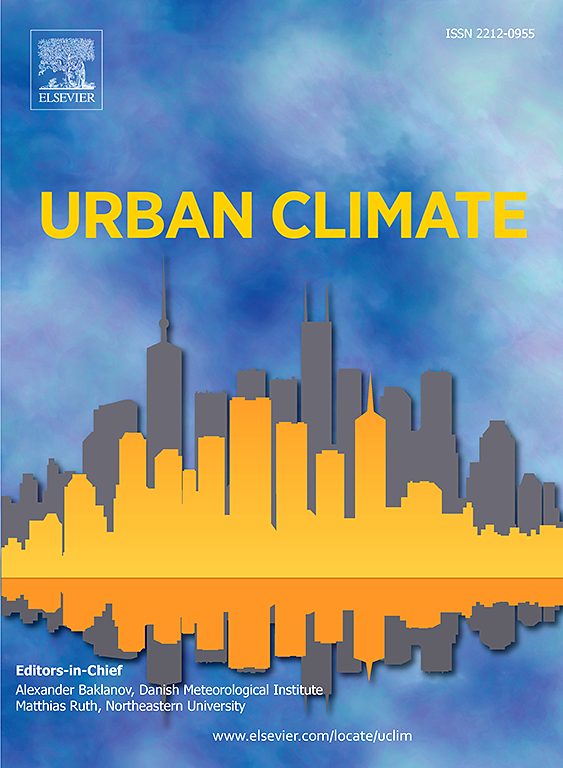通过整合GIS和AHP工具,确定在水资源紧张的城市实施城市雨水收集系统的潜在地点
IF 6.9
2区 工程技术
Q1 ENVIRONMENTAL SCIENCES
引用次数: 0
摘要
本研究提出了一种将地理信息系统(GIS)与层次分析法(AHP)相结合的新方法来确定水资源紧张城市雨水收集系统(URWHS)的最佳位置。该研究重点关注蒙特雷大都市区的拉西拉河子流域,解决气候变化、快速城市化和雨水管理不足等关键挑战。将多准则决策分析(MCDA)应用于空间数据层,评估年降水量、集水区面积、极端降雨事件、坡度和城市用水量等变量。进行了专家调查,为这些参数分配权重,确定年降水量和集水区面积是最具影响力的标准。使用基于网格的空间方法,该研究确定了高优先区域,特别是在盆地中部,在那里实施URWHS可以实现显著的节水。水需求的潜在减少量估计为13783立方米/年,几乎是该地区年需水量的十倍。研究结果强调了GIS和AHP在可持续城市水资源管理中的有效性,为缓解水资源短缺和增强城市韧性提供了一个可复制的模型。本文章由计算机程序翻译,如有差异,请以英文原文为准。

Definition of potential sites to implement urban rainwater harvesting systems in water-stressed cities by integrating GIS and AHP tools
This study proposes a novel methodology to identify optimal locations for Urban Rainwater Harvesting Systems (URWHS) in water-stressed cities by integrating Geographic Information Systems (GIS) with the Analytic Hierarchy Process (AHP). The research focuses on the La Silla River sub-basin in the Monterrey Metropolitan Area, addressing critical challenges such as climate change, rapid urbanization, and inadequate stormwater management. A multi-criteria decision analysis (MCDA) was applied to spatial data layers, evaluating variables including annual precipitation, catchment area, extreme rain events, slope, and urban water consumption. Expert surveys were conducted to assign weights to these parameters, identifying the annual precipitation and catchment area as the most influential criteria. Using a grid-based spatial approach, the study pinpointed high-priority zones, especially in the middle basin where the implementation of URWHS could achieve significant water savings. The potential reduction in water demand is estimated at 13,783 m3/year, nearly ten times the annual water demand required in the area. The results underscore the effectiveness of combining GIS and AHP for sustainable urban water management, offering a replicable model to mitigate water scarcity and enhance urban resilience.
求助全文
通过发布文献求助,成功后即可免费获取论文全文。
去求助
来源期刊

Urban Climate
Social Sciences-Urban Studies
CiteScore
9.70
自引率
9.40%
发文量
286
期刊介绍:
Urban Climate serves the scientific and decision making communities with the publication of research on theory, science and applications relevant to understanding urban climatic conditions and change in relation to their geography and to demographic, socioeconomic, institutional, technological and environmental dynamics and global change. Targeted towards both disciplinary and interdisciplinary audiences, this journal publishes original research papers, comprehensive review articles, book reviews, and short communications on topics including, but not limited to, the following:
Urban meteorology and climate[...]
Urban environmental pollution[...]
Adaptation to global change[...]
Urban economic and social issues[...]
Research Approaches[...]
 求助内容:
求助内容: 应助结果提醒方式:
应助结果提醒方式:


